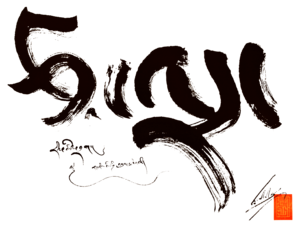Kokyo Henkel: Conversations on Buddha-Nature 06-26-2021
| Join us on Facebook without signing up! | Join us live on Facebook. Space is NOT limited. |
|---|
Description & Participants
Buddha-Nature in Early Chan and Japanese Zen
26 June 2021 · 11:00 AM Eastern Standard Time
We were on Facebook live on Saturday, June 26th at 11:00 AM Eastern Standard Time, 5:00 PM CET, 9:00 PM Bhutan Time. The discussion is available online and sections will also be made available as answers to specific questions on this website.
Lopen Dr. Karma Phuntsho had a wonderful, animated, and detailed discussion with Rev. Kokyo Henkel about Buddha-Nature in Early Chan and Japanese Zen and comparisons with Tibetan Dzogchen. They also discussed some Koans, Dogen, and many textual sources from Indian sutras in Tibetan and Chinese translation to sources for key schools of Buddhism in China and Japan up to more modern texts.
Conversations on Buddha-Nature
Recommended content
To understand what is meant by “Buddha Nature,” we can look at the story of the three turnings of the wheel of Dharma taught by Shakyamuni Buddha. The first turning of the Dharma wheel is the four noble truths: that discontent arises from grasping the ever-changing phenomena of body and mind as “me,” and that freedom from this discontent is revealed through the path of not grasping anything as truly me. The four noble truths is a kind of deconstruction method. However, in this first turning, all the different elements that we can deconstruct this person into really do exist. Earth, wind, fire and water, for example: those kind of physical elements, when you break them down into their smallest bits, are indestructible elemental energies or physical matter, atoms. Early Buddhists, who were first turning exponents, had this kind of theory—that the world is made up of atoms—several centuries B.C., long before modern scientists discovered atoms. We don’t really exist as independent “persons”; we are a conglomeration of all this stuff that we think is a real “me,” but if we look closely, we only find atoms. This turning of the Dharma wheel was only the first.
Read more here
